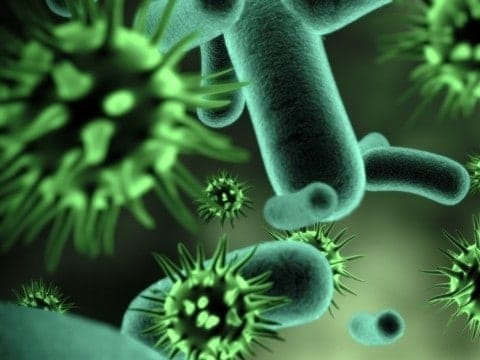
 Microbes and climate change.
Microbes and climate change.
Researchers from the University of Alberta and the University of Vienna have identified a key ammonia-oxidizing bacteria which could play a significant role in combating climate change.
Since the mid-20th century, the use of artificial fertilizers has revolutionized farming practices around the world, leading to much higher crop yields and greater agricultural efficiency. At the same time, however, the legacy of that success involves a huge uptake in the amount of nitrogen (a prime component in fertilizers) both leaking into the atmosphere or ending up in waterways as a result of field run-off.
In our lakes and oceans, the extra nitrogen and phosphorous have contributed to the growth of massive algae blooms and “dead zones,” too oxygen-poor to support life. The Gulf of Mexico, for example, currently includes a dead zone measuring over 20,000 square kilometres, about four times the size of Prince Edward Island.
Released into the atmosphere, nitrous oxide, a product of nitrification, is a significant contributor to the greenhouse effect, representing about 300 times the warming capacity of carbon dioxide and currently contributing about six per cent of global warming due to the greenhouse effect. Thus, by increasing the nitrogen content in our soils, we have effectively altered the planet’s nitrogen cycle, says Lisa Stein, professor of biology at the University of Alberta in Edmonton, Alberta.
“Humans are now responsible for adding more fixed nitrogen, in the form of ammonium, to the environment than all natural sources combined…”
“Humans are now responsible for adding more fixed nitrogen, in the form of ammonium, to the environment than all natural sources combined,” says Stein, in a press release. “Because of that, the nitrogen cycle has been identified as the most unbalanced biogeochemical cycle on the planet.”
In a new study published in the journal Nature, Stein and colleagues describe how they were able to isolate a pure culture of Nitrospira inopinata, an ammonia-oxidizing bacteria. What’s special about this microbe is that it effectively completes the two-step process of converting the ammonium found in fertilizers into nitrite and then to nitrate all by itself, something that until recently scientists weren’t sure was even possible in nature.
Microbes and climate change: reducing the amount of ammonium in our water and soil…
“The Nitrospira inopinata microbe is an ammonium sponge, outcompeting nearly all other bacteria and archaea in its oxidation of ammonium in the environment,” explained Stein. “Now that we know how efficient this microbe is, we can explore many practical applications to reduce the amount of ammonium that contributes to environmental problems in our atmosphere, water, and soil.”
The researchers project that encouraging the proliferation of N. inopinata could have positive impacts in areas such as wastewater treatment, soil purification and climate change research.
“An efficient complete ammonia oxidizer, such as Nitrospira inopinata, may produce less nitrous oxide,” says Dimitri Kits, professor with the Department of Microbiology and Ecosystem Science at the U of A and study co-author. “By encouraging our microbe to outgrow other, incomplete oxidizers, we may, in turn, reduce their contribution to the greenhouse gas effect.”
The impact of fertilizer run-off into waterways is projected to only increase in some parts of the world over upcoming decades, according to a new study in the journal Science, which says that greater annual precipitation in regions of North America due to climate change will lead to an intensifying water cycle, which would then overload waterways with nitrogen run-off.
Leave a Reply
You must be logged in to post a comment.



 Share
Share Tweet
Tweet Share
Share




Comment